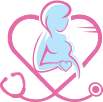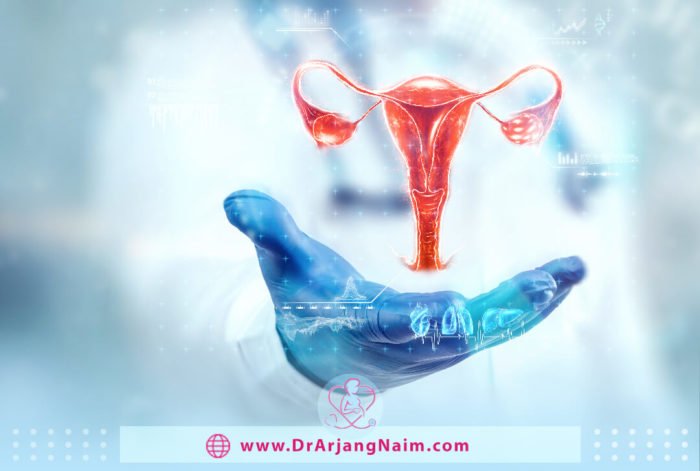Diminished ovarian reserves (DOR) occur when the ovaries produce fewer eggs, resulting in more difficult fertilization.
Pregnancy is a complex process in women that are affected by various factors. To have a successful pregnancy, all the internal organs and the male and female reproductive system must be in perfect health so that the couple can have children naturally with the least complications. Therefore, the number of hormones in the body, the physical condition of men and women, the quality and amount of sperm and eggs, the condition of the uterus, medical history such as miscarriage all affect pregnancy.
Diminished ovarian reserves (DOR) affect fertility and the overall ability to conceive. Between 10 and 30 percent of people who seek infertility help have this condition. The term “ovarian reserve” refers to the number and quality of eggs. If the ovarian reserve is reduced, it means that the number and quality of eggs are less than expected for a woman’s age.
What is the average egg count by age?
The “average” number of eggs in the ovarian reserve depends on age. There are follicles in every woman’s ovaries that potentially form in the ovaries from when they are in their mother’s womb. After puberty, several of these follicles mature each month, releasing the dominant fertile egg.
Ovarian storage, therefore, depends directly on the number and quality of these follicles. In women, the number and quality of these follicles decrease with age until they are greatly reduced or destroyed during menopause. According to the American College of Obstetricians and Gynecologists, these are the average number of eggs you have at each age:
- 20 weeks of gestation: 6 to 7 million oocytes
- Birth: 1 to 2 million oocytes
- Puberty: 300,000 to 500,000 oocytes
- Around age 37: roughly 25,000 oocytes
- Around age 51, the average age of menopause in the United States: roughly 1,000 oocytes
Women with DOR have fewer and lower quality released follicles and eggs, but no specific suffering has yet been found for the number of follicles and eggs they have.
Symptoms
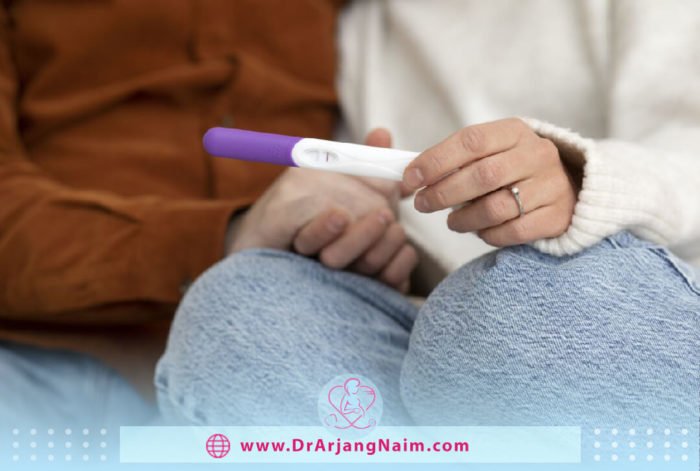
There are no significant signs of Diminished ovarian reserves (DOR). However, people with the disease may experience the following symptoms:
- Difficulty getting pregnant
- Late or absent menstrual periods
- Shorter menstrual cycles than average, with the average being 28 days
- Heavy menstrual flow
- Miscarriage
Causes of diminished ovarian reserves (DOR)
Aging naturally reduces ovarian reserves. However, several other factors include:
- Tubal disease
- Endometriosis
- Prior ovarian surgery
- Chemotherapy
- Radiation therapy
- Smoking
- Pelvic infection
- Autoimmune disorders
- Mumps
- Genetic abnormalities such as fragile X syndrome
What Is an Ovarian Reserve Test?
Ovarian reserve test includes a blood test and ultrasound to measure the size of the ovarian reserve. It is important to note that while these tests are important in diagnosing DOR, no ovarian reserve test is completely accurate in predicting whether or not a woman can become pregnant.
Blood tests
Blood tests are the most common way to test for ovarian reserve by measuring the level of certain hormones in the blood. These hormones, estradiol and follicle-stimulating hormone (FSH), are checked at the beginning of the cycle (usually on the third day).
Ultrasound
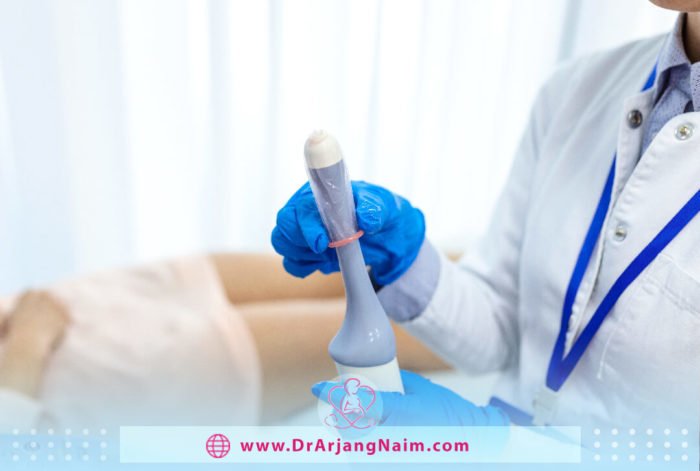
The doctor may recommend a transvaginal ultrasound at the beginning of the cycle. This measures the number of antral follicles between 2 and 10 mm in both ovaries. The follicles are cavities inside the ovary full of fluid, and each has an egg. The follicle count allows the doctor to know the number of eggs available.
Treatment
Pregnancy is still possible with reduced ovarian reserve. According to the Center for Reproductive Health, 33% of patients with a reduced ovarian reserve can become pregnant after receiving treatment with their eggs. However, the center emphasizes that early diagnosis is important because there is a greater chance of getting pregnant.
One of the most common therapies for reducing ovarian reserve is supplements such as dehydroepiandrosterone (DHEA), a mild androgen. DHEA is produced naturally in the body, but DHEA levels decrease with age. DHEA supplements can increase fertility.
Apart from DHEA supplements, there are several ways to get pregnant if you have the disease. If a decrease in ovarian reserve is detected soon, healthy eggs can be frozen for future use. Another option is to use a donated egg to get pregnant.
What is AMH?
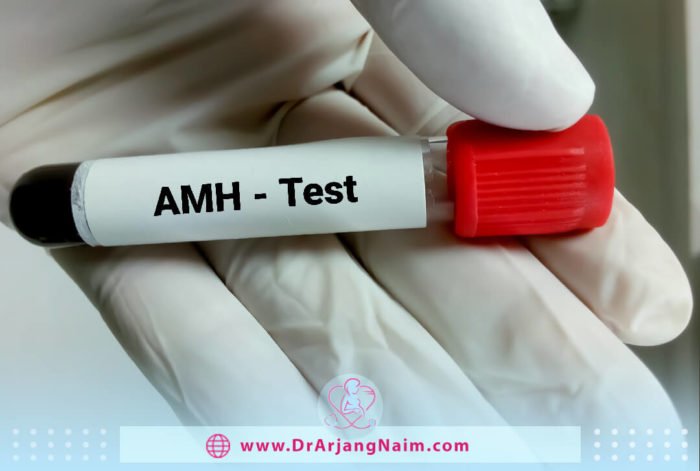
AMH is actually produced in the male and female genitals but is usually only measured in women. This is because the follicles that grow in a woman’s ovaries produce AMH. The basic premise is that the higher the number of eggs, the higher the AMH level and vice versa. This is why AMH levels are measured before IVF, as the results help assess ovarian reserve. It is important to remember that AMH levels are a key indicator of the amount of eggs left, but they do not provide a reliable indicator of the quality of the eggs being produced.
Aging is associated with decreased AMH levels, which reflects poor ovarian reserve as menopause approaches. However, the fluctuation of AMH levels from one cycle to another is normal, meaning that although certain factors cause the levels to decrease naturally, they can also improve naturally. One way to encourage the body to increase AMH levels naturally is to eat a diet rich in essential nutrients such as vitamin D.
How Vitamins and Supplements Can Boost Egg Quality
Healthy mitochondria and DNA are both important in the quality of eggs. For proper mitochondrial function, the body’s cells need all the building blocks to produce adenosine triphosphate (ATP), a molecule that provides energy for all cellular processes.
It contains large amounts of B vitamins such as riboflavin (B2) and niacin (B3). Mitochondria also need other micronutrients such as omega-3 fatty acids, magnesium, iron, vitamin E, selenium, and CoQ10. Tips to improve mitochondrial quality include:
- Consumption of sugar, alcohol, fried or processed foods can damage mitochondria and cause premature aging of egg cells. Preparing fresh foods prepares the body for a healthy pregnancy.
- Eat foods rich in amino acids, antioxidants, and healthy fats. This means fresh fish, organic vegetables, avocados, extra virgin olive oil, nuts, seeds, and low-sugar fruits.
- Do meditation and other relaxation-based techniques. They can reduce oxidative stress, which means less damage to the mitochondria.
- Exercising regularly can help with mitochondrial health.
Supplements
Taking vitamins and supplements can help improve egg quality.
Co-Q10
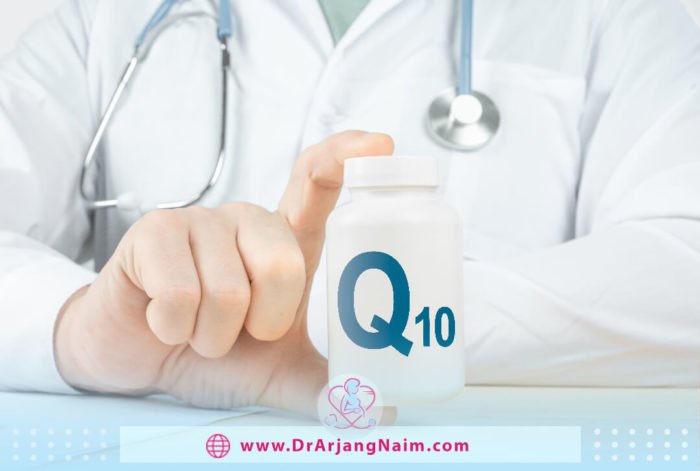
Coenzyme Q10 (CoQ10) is a fat-soluble nutrient found in almost every cell in our body, including the ovaries and eggs. It acts as an antioxidant, neutralizing toxic byproducts caused by everyday chemical reactions.
CoQ10, which is equally important for its antioxidant properties, is vital for energy production. Eggs have the highest number of mitochondria among the body’s cells. This is logical because the process of ovulation and embryo formation requires a lot of energy.
DHEA
Dehydroepiandrosterone (DHEA) is a natural hormone that has little biological activity of its own but has powerful effects when converted to other hormones such as testosterone and estrogen.
Melatonin
Melatonin is a neuronal hormone that is produced in almost all of our cells but is only secreted by the pineal gland in the brain. It has strong antioxidant properties that help prevent oxidative stress and cell damage caused by free radicals and reactive oxygen species (ROS). Oxidative stress can negatively affect eggs as well as the ovulation process. Melatonin is found in the follicular fluid of the ovaries and the eggs themselves. That’s why melatonin supplementation has become a growing issue in the reproductive world.
Interventions to improve egg quality should be performed when the egg matures, not when it has matured and is ready to be released. Most studies focus on results after three months of supplementation, but the short-term effects of lifestyle factors that have been shown to affect in less than 90 days cannot be ignored. The quality of growing eggs and their response to natural or external hormonal stimulation can be affected by stress, environmental pollution, poor diet, inflammation, substance abuse, excessive smoking, hormonal imbalance, and so on.
The bottom line
Diminished ovarian reserve (DOR) is a condition in which the ovary loses its natural reproductive potential and compromises fertility. Ovarian reserve refers to the number of eggs in a woman’s ovaries during each period. High-quality eggs are one of the most important factors affecting pregnancy health.
Other factors affecting reproductive health include hormonal balance, proper blood circulation, and a healthy lifestyle. In addition to helping maintain a successful pregnancy and delivery, these factors affect the formation of the fetus and the occurrence of implantation.
Ovarian reserve examination is one of the first steps a specialist doctor performs to find the cause of infertility in women.
Arjang Naim MD, after thoroughly examining the client’s condition and performing the necessary tests, suggests appropriate methods of assisted reproduction.
Additional questions
1. What is a good number for ovarian reserve?
Results between 0.7 and 5.0 are usually considered in the normal range. Levels below 0.7 indicate a decrease in ovarian reserve. Ideally, AMH levels above 1.2 have better results in ovarian stimulation. Levels above 5.0 may indicate polycystic ovary syndrome.
2. Can folic acid improve egg quality?
Folic acid supplementation improves the environment for the growing egg and is associated with an increased chance of pregnancy and a reduced risk of infertility.
3. At what age does ovarian function begin to decline?
Menopause is normal disruption of ovarian and menstrual function. Menopause can occur between 42 and 56 but usually occurs around the age of 51, when the ovaries stop producing eggs and estrogen levels drop.
4. Which fruit is good for egg quality?
- Citrus fruits
- Leafy greens
- Berries
- Avocados
- Quinoa
- Greek yogurt
- Salmon
- Eggs
- Walnuts
- Lentils and beans
5. Is diminished ovarian reserve the same as a premature ovarian failure?
Diminished ovarian reserve (DOR) is defined as the reduced capacity of the ovaries to produce oocytes. The most severe form of DOR can be represented as premature ovarian failure (POF).
References:
https://www.healthline.com/health/diminished-ovarian-reserve
https://fertility.womenandinfants.org/services/women/diminished-ovarian-reserve
https://www.webmd.com/infertility-and-reproduction/what-is-diminishing-ovarian-reserve
https://www.thebump.com/a/10-fertility-boosting-foods-to-help-you-get-pregnant
